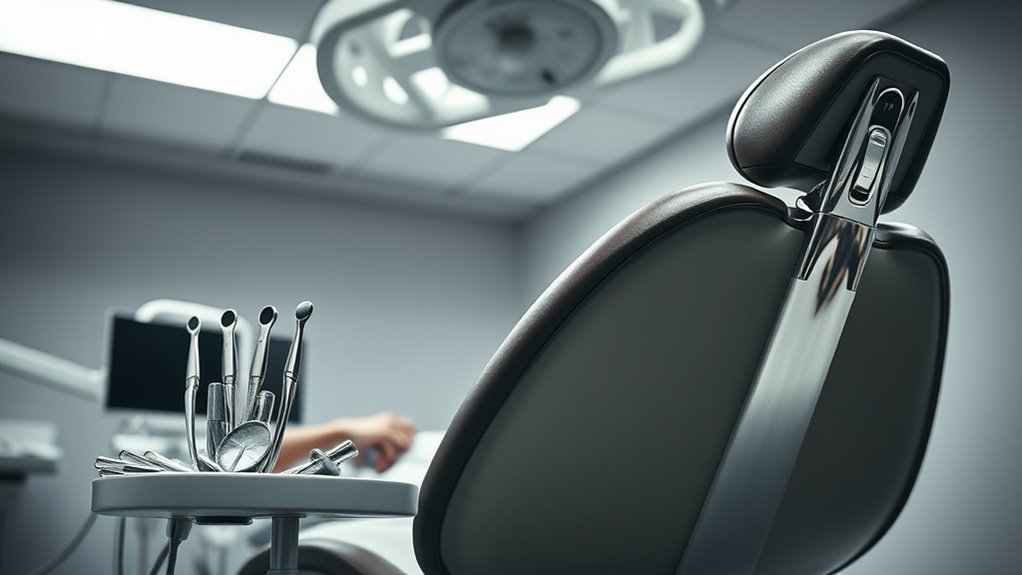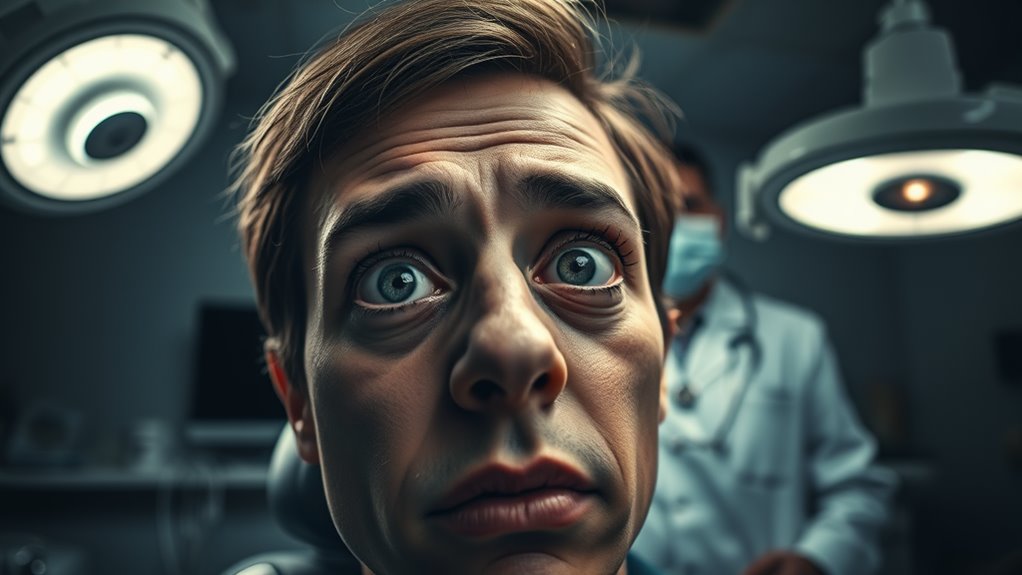The Terrifying Truth About Dental Phobia (And How to Overcome It!)
If you’re terrified of the dentist, you’re not alone – over one-third of Americans share your fear. Dental phobia often stems from traumatic past experiences and can trigger intense physical reactions like panic attacks. While avoiding the dentist might feel safer, it can lead to serious health complications beyond just tooth decay. The good news? Modern dentistry has transformed dramatically with pain-free technologies and proven anxiety management techniques that can help you reclaim your smile.
Understanding Dental Phobia: More Than Just Fear
While many people feel nervous about visiting the dentist, dental phobia goes far beyond typical anxiety. It’s a severe, overwhelming fear that can trigger intense physical and emotional reactions at the mere thought of dental procedures. You might experience rapid heartbeat, sweating, difficulty breathing, and even panic attacks.
This phobia often stems from traumatic past experiences, fear of pain, loss of control, or feelings of helplessness in the dental chair.
You’ll notice that dental phobia significantly impacts your daily life, causing you to avoid necessary dental care altogether. This avoidance creates a vicious cycle: dental problems worsen, leading to more complex procedures when you finally seek help, which reinforces your fear.
Understanding that dental phobia is a recognized condition helps validate your feelings and is the first step toward finding effective solutions.
The Root Causes of Dental Anxiety
Although dental phobia can feel like an unexplainable fear, it typically develops from specific underlying causes. You might trace your anxiety back to a traumatic dental experience, perhaps from childhood, where you felt pain or powerlessness.
Past negative interactions with insensitive dental professionals can also trigger lasting anxiety. Your fear may stem from inherited family attitudes about dental visits or stories you’ve heard from others.
Physical factors like sensitive gag reflexes or difficulty getting numb can contribute too. You might feel ashamed about the condition of your teeth, fear needles, or worry about losing control in the dental chair.
Understanding these root causes is crucial because they’ll help you and your dentist develop targeted strategies to manage your anxiety effectively.
Physical and Mental Health Impact of Avoiding the Dentist
Because dental phobia can keep you away from regular checkups, it often leads to a cascade of serious health problems. When you avoid dental care, minor issues can quickly escalate into major complications that affect both your physical and emotional well-being.
The impact of untreated dental problems can devastate your life in these ways:
-
Your self-esteem plummets as your smile deteriorates, leading to social withdrawal and depression.
-
You’ll experience chronic pain that interferes with eating, sleeping, and daily activities, diminishing your quality of life.
-
Your overall health suffers as oral infections spread, potentially leading to heart disease, diabetes complications, and respiratory problems.
Don’t let fear control your health – the consequences of avoiding dental care far outweigh the anxiety of seeking treatment.
Modern Dentistry: Why There’s Less to Fear Today
Thanks to remarkable advances in dental technology and techniques, today’s dental visits bear little resemblance to the intimidating experiences of the past.
You’ll find that modern dental offices use painless digital X-rays, ultra-quiet electric drills, and laser treatments that minimize discomfort. Even local anesthesia has improved with computer-controlled delivery systems that ensure precise, comfortable injections.
If you’re anxious about pain, you’ve got options like sedation dentistry, ranging from mild anti-anxiety medications to complete sleep dentistry.
Advanced imaging technology lets dentists plan treatments more accurately, while same-day crowns eliminate the need for temporary fittings.
You’ll also notice that many offices now feature comfort-focused amenities like noise-canceling headphones, weighted blankets, and aromatherapy to help you relax during procedures.
Expert-Backed Strategies to Manage Dental Fear
Mental health professionals and dental experts recommend five proven strategies to overcome dental anxiety: gradual exposure therapy, deep breathing exercises, guided visualization, cognitive behavioral therapy, and open communication with your dentist.
You can regain control of your dental health by starting small. Visit the dental office without an appointment, meet the staff, and slowly build trust.
Practice calming techniques like the 4-7-8 breathing method or visualize yourself in a peaceful setting during procedures.
- You’re stronger than your fear – millions have overcome dental phobia
- You deserve a healthy, pain-free smile that’ll boost your confidence
- You’ll feel an incredible sense of accomplishment after each successful visit
Finding the Right Dentist for Anxious Patients
Armed with these coping strategies, your next step is finding a dentist who specializes in treating anxious patients.
Look for dental practices that explicitly advertise “sedation dentistry” or “anxiety-friendly care.” Check their websites and reviews for mentions of anxiety management techniques.
During your search, don’t hesitate to call offices directly and ask about their experience with fearful patients. A compassionate dentist will welcome your questions and explain their approach to anxiety management.
They should offer options like nitrous oxide, oral sedation, or IV sedation if needed.
Schedule a consultation visit before any treatment. This gives you a chance to meet the staff, tour the facility, and discuss your fears openly.
The right dentist will take time to understand your concerns and create a personalized comfort plan for your visits.




